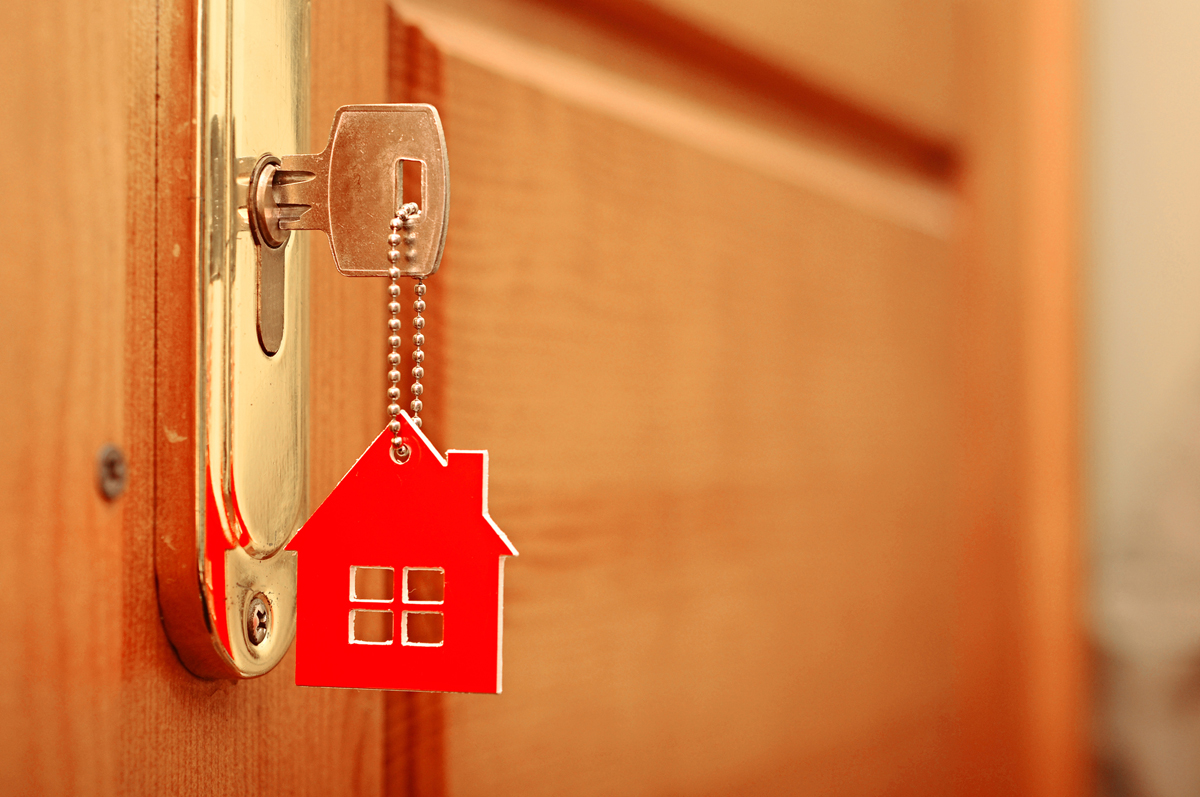Fha Loans Explained + Requirement Checklist & FAQ
While they may seem like industry insider lingo to a first-time homeowner or an un-informed borrower, don’t just tune them out as they play a critical role in how homes across the United States are financed everyday.
Plus, by the time you finish reading this post, you’ll know more than many of the so called industry experts.
Here’s Everything You’d Want to Know About FHA Loans!
🙄 If you don’t care and just want to know how much home you can afford in California (sorry, we can’t help elsewhere), APPLY HERE, (it’s 100% free, takes less than 10 minutes, won’t hurt your credit & outside of MVF, no one will know, unless you tell them!)
Let’s get right to it with a bit of FHA history!
The FHA has been Making Homeownership Possible Since 1934.
The government created the FHA back in 1934 during the great depression. They did it because up to this point, loans were limited to 50% of the property value, had to be repaid in 3 to 5 years with a large balloon payment at the end and were extremely difficult to get for the majority of the population. Before 1934, America consisted of a nation of renters, with just 1 out 10 households owning their homes (as of 2023 homeowners made up nearly 66% of all households).
FHA-backed (guaranteed) loans appeared as a way to stimulate the housing market. They offered programs that reduced the risk for the lenders and made it easier for borrowers to get approved.

A Mortgage For Those With Bad Credit Or Low Income:
These are Federally insured mortgages, and they are issued by an FHA-approved institution. A lot of people with bad credit or low income can find FHA to be their best choice since they require a minimum down payment and their credit score requirements are the lowest.
There are some advantages FHA loans have over conventional loans. Some of them are:
● Down payment starts at 3.5% of the property value. While conventional loans have changed over the years, a borrower typically needed 20% down to even approach a bank for financing. Today 5% down is fairly common (in 2024 we’ve even seen 3% down programs), yet they still have some caveats we’ll cover sooner than later.
● FHA Loan Programs make it possible for borrowers with low FICO® credit scores, as low as 500 (with 10% down), to become homeowners. With conventional loans you’ll have to be better than a 620.
It is important to note the FHA doesn’t lend the money, however, they make sure an FHA-approved institution (it could be a bank, credit union, or any other type) approves your application.
To do that, they offer the lender a claim in case you default your mortgage. That is the reason why the borrower is required to purchase mortgage insurance and that is also the reason behind the premium payments.
In a nutshell, these are the most important aspects of an FHA loan:
● Federally backed. This means they are ideal for people with low income or bad credit score
● They require as low as 3.5% of the property as a down payment
● The government is not lending the money, they just make sure an FHA-approved institution provides it.
● As part of your FHA loan, you need to purchase mortgage insurance and pay premium fees.
FHA Loan Limits
All FHA loans are limited by the area of the property. This means you won’t be able to get a loan higher than the area limit.
These are the area types and limits up to 2020, according to Investopedia

FHA Loan Relief
If by any reason you experience an unprecedented financial hardship during the terms of your FHA mortgage, you may be eligible for loan relief. The Home Affordable Modification Program (HAMP) can lower your mortgages so you don’t have to default your loan.
Things That Will Prevent You From Getting An FHA Loan
● Having experienced bankruptcy in the last two years (unless you can demonstrate it was due to an uncontrollable circumstance, like COVID, if that’s the case)
● Having been involved in any foreclosure event in the last 3 years
● Being late or having evaded federal student loans or income taxes
FHA Loan Requirements Checklist

The process is the same for all types of mortgage loans, either FHA or conventional, however, when you ask for an FHA loan, instead of checking your credit report, lenders will pay attention to your income and spending history for the last two years. Here’s everything you need to apply for an FHA loan.
● A steady income or proof of employment
You must prove you have been in the same job for at least two years. If you are self-employed, you can present your tax returns for the last two years and a year-to-date balance sheet.
● A debt-to-income ratio less than 43%
When you sum every part of your front-end ratio (that is: mortgage payment, HOA fees, property taxes, and insurances) the result should be under 31% of your gross income.
The result of your back-end ratio (mortgage + all other debt) should be less than 43% of your gross income, but you still can get approved with a 50% ratio.
● FICO score between 500 – 580+
You may be able to get approved even if your credit score is bad, however, you need to keep in mind that the worse your credit score, the higher the interest rate you’ll end up paying.
○ Between 500 – 579 = 10% Down payment
○ 580 = 3.5% Down payment

● Mortgage Insurance premium
If you stop paying your mortgage and the bank foreclosures it, the FHA will pay the lender a claim. That’s why FHA loans are ideal for people with bad credit, but that’s also the reason for the insurance and the premium.
● Must be borrower’s primary residence
That means you can only use FHA loans for housing. Not for investment or property rental.
● Property appraisal
You need to get an appraisal for most house loans. However, FHA loans require the house to cover certain standards. And if those are not met by the previous owner, you must pay for them at closing (also taken from your escrow account).
● Legal citizenship and age To qualify for an FHA Loan, you also need:
○ A valid social security number
○ To be a legal resident of the U.S.
○ Be of legal age according to your state laws
Your rights come first
Nobody can deny a loan to you for discriminatory reasons. If you think you have been subject to discrimination based on sex, race, religion, country of origin, or anything else, you can file a report to the Consumer Financial Protection Bureau.
Types Of FHA Loans

There are different FHA loans you can get depending on your particular situation and the type of estate you want to finance. Here are some of the most common.
● Traditional Mortgage
This is the most common type of loan people use. Under the FHA guidelines, you can get a loan from an FHA-approved institution even with a bad credit score or a low income.
● Home Equity Conversion Mortgage
This Mortgage allows people over 62 to convert the equity of their home to cash while keeping the property. They can choose to receive the money spaced monthly or a single line of credit.
● 203(k) Improvement loan
This loan is particularly designed for those who want to purchase or make repairs on a house. There are different varieties of this loan, depending on the type and cost of the repairs that need to be done.
● Energy-efficient mortgage
This one is very similar to the 203, but Energy Efficient Mortgages are used to make upgrades that can reduce your utility bills, such as solar or wind energy systems.
● Section 245(a) loan
This program is designed to increase the monthly paid amount gradually over time. So it is the best choice for someone who expects their income to grow in the short to medium term. Using this program can help you reduce the overall loan term.
FHA Loans Vs Conventional Mortgages -What You Should Know

When looking for options for a mortgage, FHA may be a good choice for you, depending on your particular situation. Here are some of the most relevant points to consider before deciding which type of mortgage you’ll get.

Mortgage Insurance And Premiums
If you opt for an FHA loan, you will be required to pay two different types of mortgage insurance premiums:
● An upfront MIP
● An annual MIP (that is not annual but monthly paid)
You need to pay for those premiums with your escrow account, set by the Treasury Department. And in the event of you defaulting the loan, the funds in your escrow account will be used to make mortgage payments. You can choose to pay the upfront MIP at once or to roll it into the loan.
8 Tips Before Applying For An FHA Loan

Ready to go for that FHA Loan? Here is everything you need to know about interest rates, savings, and down payments before you start.
1. The 12-month rule
The first thing you need before even thinking about your mortgage options is savings. Financial experts suggest that you start by saving the amount of 12 consecutive monthly mortgage payments. This not only helps you keep track of the debt, but also puts to test your saving and spending skills. If you struggle to save 12 payments, you will struggle to pay a monthly mortgage.
2. About mortgage insurance premiums
You will pay for two types of premium
● Upfront MIP
● Annual MIP
What may be confusing is that the annual MIP is not annual, but monthly. You will pay for those with your escrow account.
3. Natural disaster survivors
FHA loans can be approved with a minimum of 3.5% of the adjusted property value. Only in case of a natural disaster such as hurricanes or wildfires, there is also the possibility of getting a loan with 0% upfront.
4. Requirements for occupancy and residency
Some types of mortgages such as FHA loans-new purchase mortgages, or 203(k) rehab loans, do not necessarily require the borrower to be a United States citizen, although non-residents can apply, the applicant must provide documentation of his legal status.
5. Points to consider about your credit report
You can take for granted that lenders will check your credit report. The best thing you can do is to think in advance and make sure all your information is right. If you have enough time before applying, you can look for a credit report monitoring system to keep your finances ready for examination.
6. Paying your bills on time pays out
As part of the application for an FHA loan, you must provide pay stubs from the last 12 months. Lenders will look into your bills to evaluate if you are a good credit risk. It is not an overestimation to say that any late or missed payment can mean the difference between getting approved or not.
7. The source of the money matters
You cannot use means like payday loans or credit card cash for the down payment. Also keep in mind that financial institutions are allowed to verify the sources of the money you use, including any cash savings and family or friends contributions.
8. Use the FHA calculator
You can set the price of the house you want and check your monthly payment amount, estimate your taxes and insurance payments. Check the calculator here.

FAQ About FHA Loans
Who Qualifies For an FHA Loan?
Any legal resident of the U.S. with a valid social security number and of legal age according to state laws.
What Are The Requirements For An FHA Loan?
● A steady income or proof of employment
● A debt-to-income ratio less than 43%
● FICO score between 500 – 580+
● Pay Mortgage Insurance Premium
● Property appraisal
How To Qualify For An FHA Loan?
There are many ways you can increase your chances to get approved, some of those are:
● Keep a record of all income and debt payments
● Give your finance a complete check-up before even starting the process
● Fix your FICO score, and if possible, clear all previous debt
● Save at least 12 months of monthly payments before committing
Check out the complete guide on how to get approved for a home loan here [insert a link to post “How To Get Approved For A Home Loan”]
Can You Pay Off An FHA Loan Early?
Yes. Lenders cannot charge any penalty if you decide to pay off your debt early.

What Is The Downside Of A FHA Loan?
Depending on your possibilities and desired house, there may be some downsides to using FHA loans.
● Higher Mortgage Insurance premiums
● Monthly FHA mortgage premium
● Upfront mortgage insurance premium (1.75%) regardless of down payment
● Lower loan limits
What Is The Catch With An FHA Loan?
FHA Loans are meant for low-income and bad credit score individuals, therefore they offer smaller, but higher-in-interest fees.
How Does An FHA Loan Work?
The FHA offers special conditions to lenders who provide the funds for the FHA loans. If you default your mortgage, the credit institution not only forecloses the house but also gets a claim.
Why Some Sellers Don’t Like FHA Loans?
FHA loans require the house to meet some criteria to be eligible. Some sellers are afraid people will walk away if there are any problems with the house inspection.
Are FHA Loans Closing Costs Higher?
They are practically the same for conventional and FHA loansHow can I know if an FHA loan is for me?
Check the FHA loan online calculator and evaluate if that’s your best bet.
Conclusion

FHA Loans have helped thousands of Americans who wouldn’t be able to buy a house by any other means. Although this is a great option for those with bad credit or a low income.
If you want to apply for an FHA mortgage, you can use the online calculator to check if it works for you. Check also these tips on How to get approved for an FHA or conventional mortgage [“How To Get Approved For A Home Loan”].
And if you still have questions about FHA loans, your FICO score, or mortgages, contact us and let us help you!





